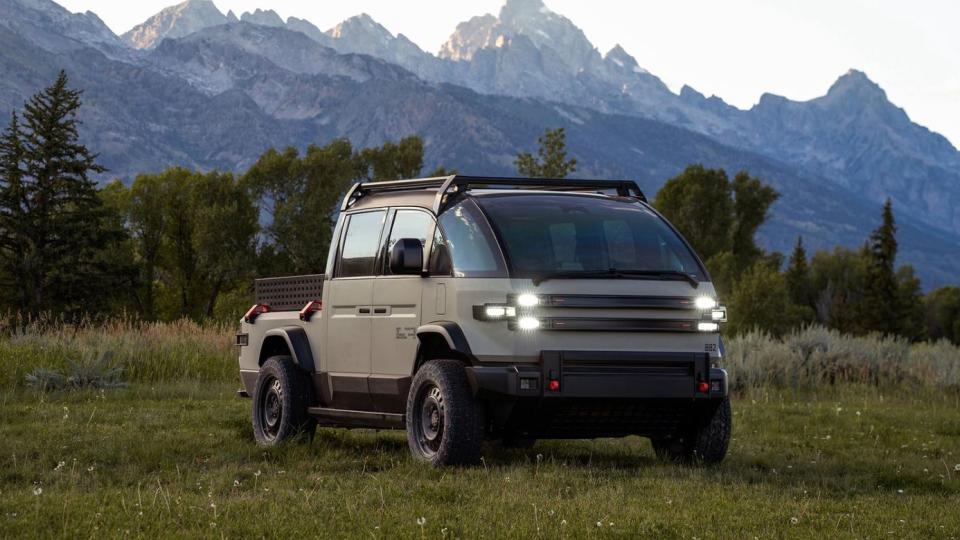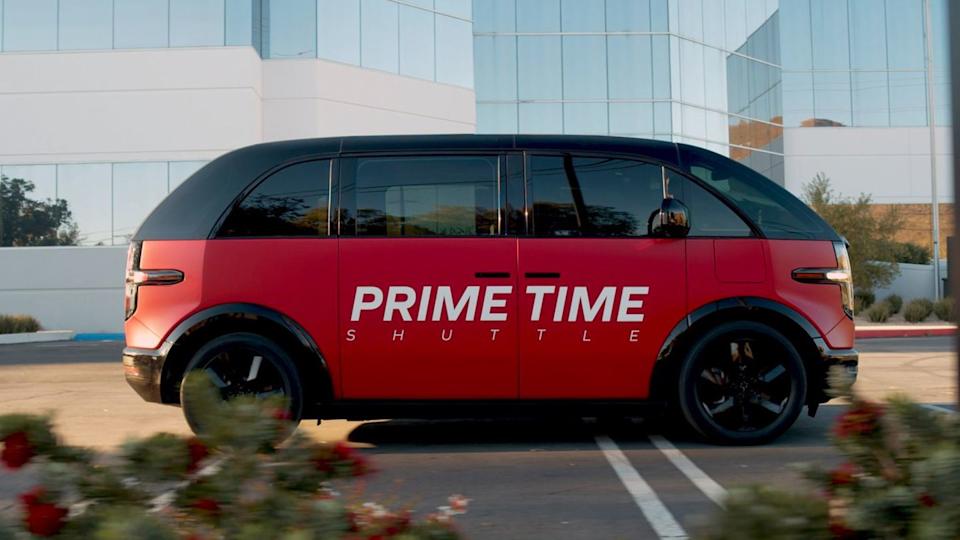Canoo Unveils American Bulldog, but Can It Hang On as EV Competitors Arrive?

EV startup Canoo continues to focus on commercial orders for its vans, while also revealing a four-door pickup dubbed American Bulldog.
The company's financial picture remains precarious, with significant expenditures in 2023 as it works to increase production.
Canoo will soon face a greater number of competitors in the passenger and commercial van segments, as new models arrive.
Canoo's futuristic electric van was first revealed in 2019, promising an innovative design along with an electric powertrain and a cavernous interior—ingredients that seemed to speak to a segment of the van-life crowd.
Since that time, as it has inched closer to something resembling volume production, Canoo has reoriented itself from potential retail customers to commercial orders. The latest such order was revealed a few days ago, with Prime Time Shuttle set to purchase up to 550 Canoo Lifestyle Vehicles.
The LVs will be used as shuttles in the Los Angeles area, though in the longer term the company hopes to use them outside of LA as well.
Just a few days ago Canoo also said it has received an EPA permit for its assembly site in Oklahoma City and has delivered its first Lifestyle Delivery Vehicle (LDV) to the state, part of an order of some 1000 units. The startup is now in the process of hiring working for its production facility in the state.
However, Canoo's finances remain precarious.

The startup posted a loss of $112 million in the third quarter of this year, with $8.3 million in cash and equivalents remaining at the end of September. For the first nine months of 2023 Canoo posted a loss of $273.6 million, along with revenue of just $519,000.
"We are now in our manufacturing and revenue-generation phase, while we still have things left to prove. We have worked nearly three years to get to this point," said Tony Aquila, investor, executive chairman, and CEO of Canoo.
Just days ago Canoo also revealed a four-door pickup version of its van vaguely resembling a VW DoKa, dubbed American Bulldog, eager to capitalize on the EV pickup craze currently gathering momentum in the market. The truck itself is based on the Screaming Eagle prototypes delivered to the US military for testing in 2022.
But the company has not made any estimates of production timelines or pricing.
The highest-profile news from the company this year was perhaps the reveal of Crew Transport Vehicles for NASA's Artemis program. The first flight has been scheduled for November 2024, with the electric shuttles set play the role of Airstream motorhomes that had taken shuttle astronauts to the launch pad in the past.
While that piece of news may have been the high point of Canoo's year in terms of publicity, it also underscored just how much the startup is still relying on niche orders from commercial customers that are far from being completed.
In some ways it also reflects the typical problems experienced by EV startups whose future products were revealed in concept form in one economic and consumer landscape, but arrived on sale in a markedly different one, facing challengers from established automakers.
And as other startups with long product gestation periods, it is also seeing the EV market evolve faster than it can deliver its promised goods.
In 2024 Canoo will face some direct competition from Volkswagen when the ID. Buzz arrives on sale in the US after a long development cycle. Canoo's commercial vans, meanwhile, will also see competition from Rivian and BrightDrop's delivery vans.
In the face of this competition, it's prudent to ask just how Canoo hopes to set itself apart in the coming years from much larger challengers, as commercial and private customers alike become more interested in price points and dealer support rather than innovation.
Will demand for electric vans grow in the coming years, or are most buyers still focused on crossovers and SUVs? Let us know in the comments below.

 Yahoo Autos
Yahoo Autos 